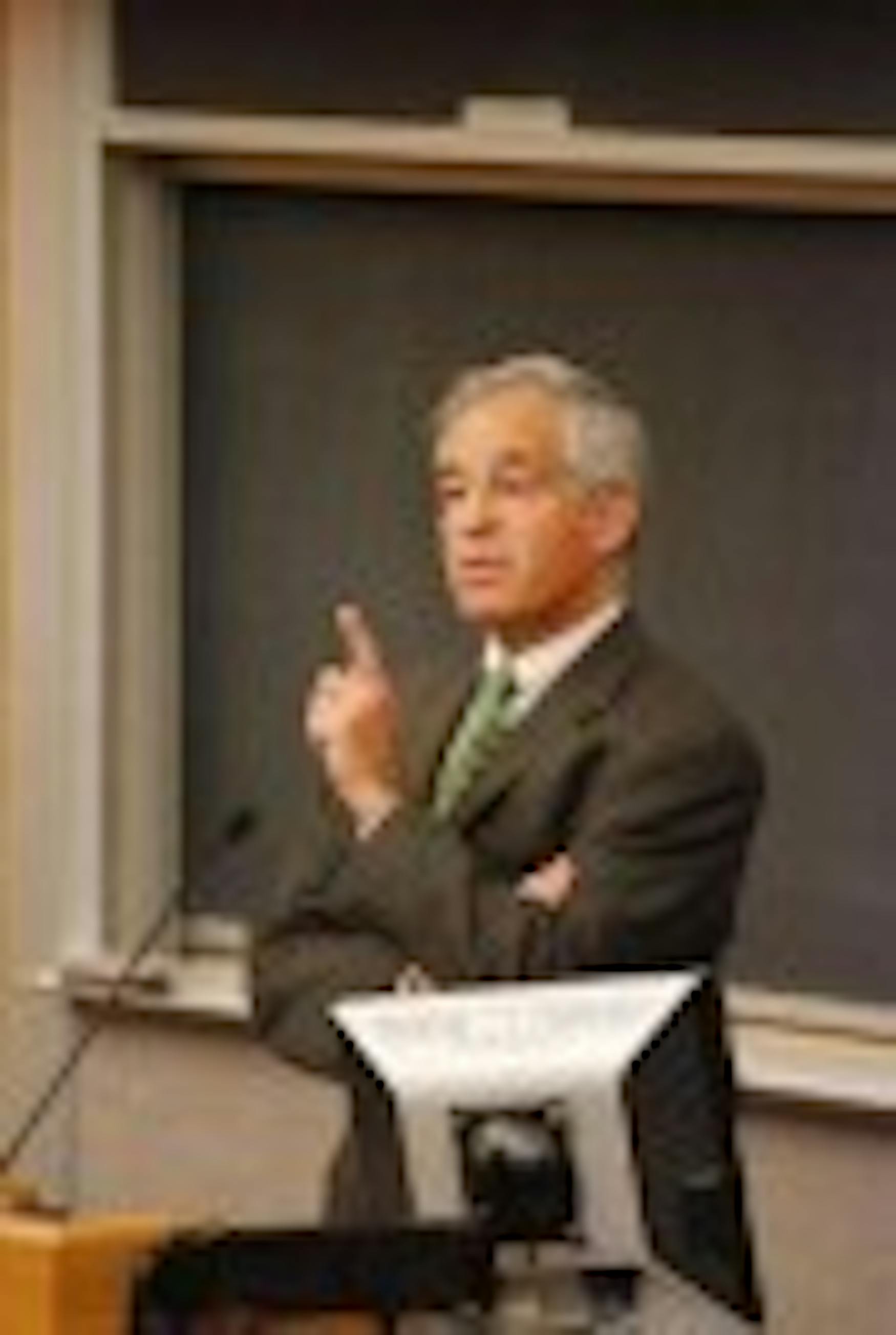Committee created to contest Rose decision
The faculty voted to establish a committee of stakeholders to consider all options related to future decisions concerning the Rose Art Museum at a faculty meeting last Thursday, three days after the Board of Trustees announced its decision to close the museum and sell the art collection Jan. 26. One hundred four faculty members voted in favor of the motion proposed by Profs. John Plotz (ENG) and Elizabeth Ferry (ANTH). Eleven members were opposed and 12 abstained.
Many faculty criticized the administration's judgment in announcing the closure of the Rose Art Museum, the process by which the decision was made, how details of the decision were conveyed to faculty and the ensuing national media coverage.
One representative from each of the three campus media outlets, the Justice, The Hoot and Innermostparts.org, was let inside the meeting.
As of Monday, the committee comprises Profs. Jerry Samet (PHIL) and Prof. Nancy Scott (FA), with Prof. Eric Hill (THA) as the chair, according to Faculty Senate Chair Prof. William Flesch (ENG).
Provost Marty Krauss said she thought the creation of the committee was an excellent idea. She said the motion's wording had a somewhat "vague scope, and so I think it needs to be clarified."
At the meeting, University President Jehuda Reinharz said the Board of Trustees had foreseen the potential but not the extent of the public outcry over the decision.
"The board did realize that this is going to create a difficult [public relations] situation," he said.
Later in the meeting, however, he said that "no one had anticipated that we could have that kind of reaction," which he characterized as "an avalanche of such bad publicity," a comment met with an audible stir in the room.
Referring to the "gasp that went up in this room" when Reinharz said that the Board had not anticipated the intense reaction, Prof. Marc Brettler (NEJS) said at the meeting that "many of us are worried what kind of mechanisms will be put in place [so a further] public relations disaster does not occur."
He went on to criticize the University for sending mixed messages, remarking that "in one official document everything will be sold, in one interview [only some things will be sold], and then today maybe nothing will be sold."
Burg said at the faculty meeting that the Board of Trustees thought debating the academic restructuring was more important than the Rose Art Museum. "In the minds of the Board ... the faculty is way more important to them than the Rose," he said.
Burg said the source of the original proposal to close the Rose was unclear. "I don't know where the actual resolution came from," he said.
Asked why the decision "wasn't discussed with the Department of Fine Arts," Reinharz said the Administration had deviated from the Board's instructions by informing the Faculty Senate Council confidentially prior to the decision, though not asking for their approval.
One member of the Senate Council, Prof. Catherine Mann (IBS) said the meeting had concerned "the closure of the Rose, period," not the sale of artwork.
Hill disputed that claim. "I warned that if we tried to sell, it would be a disaster," because of the depressed art market, he said.
He called into question the confidentiality of the Senate Council meeting. "Why ask us to remain confidential? [Then] why tell us in the first place? If we can't do anything about it ... why tell us?" he asked.
"Why close it, and why is it not reversible?" Prof. Gordon Fellman (SOC) asked. "If the museum is not closed, we cannot sell the art," Reinharz replied. "If museums sell art they have to use the proceeds to buy more art. That is not our intention right now, to buy more art."
Profs. John Plotz (ENG) and Elizabeth Ferry (ANTH) then proceeded to make a motion that says the "decision was made to close the Rose . without the consultation of the relevant stakeholders in the University community," and then "calls on the Senate to create a committee that includes representatives from the relevant stakeholders . to explore various actions that may be taken with regard to the Rose Art Museum."
Prof. Jonathan Sarna (NEJS) advised against the motion, saying that given the financial crisis, "it's very strange to devote our energies to a decision we already know perfectly well won't be changed."
Prof. Ramie Targoff (ENG) said that while perhaps the decision was made with the best intentions, "the process was absolutely egregious." Given the international and national reaction, "perhaps [the Board] will see what an absolute disaster this has been," she said.
"We do not rubber-stamp positions made by a board. [The Rose] is not a dead corpse; this is somebody that needs life support," she concluded, to all-around applause.



Please note All comments are eligible for publication in The Justice.